SNOWPIERCER (2013)
In a future where a failed climate-change experiment has killed all life except for the lucky few who boarded the Snowpiercer, a train that travels around the globe, a new class system emerges.
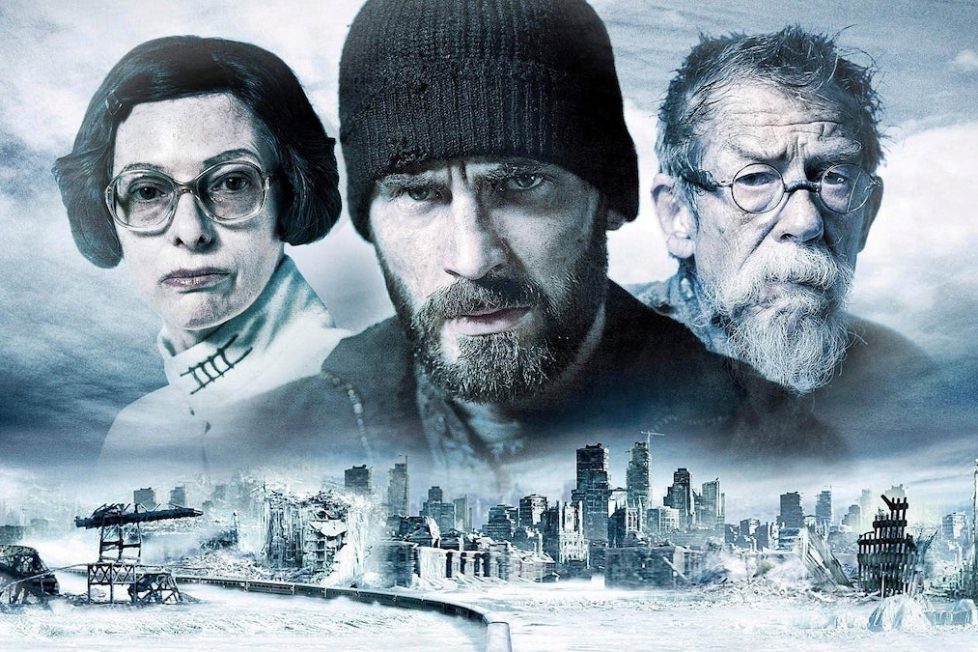
In a future where a failed climate-change experiment has killed all life except for the lucky few who boarded the Snowpiercer, a train that travels around the globe, a new class system emerges.


With the world currently in the grip of national lockdowns due to the COVID-19 pandemic, the year seemed to start and end on 10 February when South Korean director Bong Joon-ho swept the 2020 Academy Awards, making history with the first foreign language film to win ‘Best Picture’ with Parasite (2019). It was, as they say, a cultural reset.
Although Parasite may have launched director Bong Joon-ho to international stardom and critical acclaim, the filmmaker’s long been churning out some of the century’s best films, from Memories of Murder (2003) to Okja (2017). However, his first English-language film, the post-apocalyptic sci-fi thriller Snowpiercer, was overlooked upon its release in 2013. Now, as more people delve into this master filmmaker’s previous work, Snowpiercer is finally getting the attention it deserved years ago.
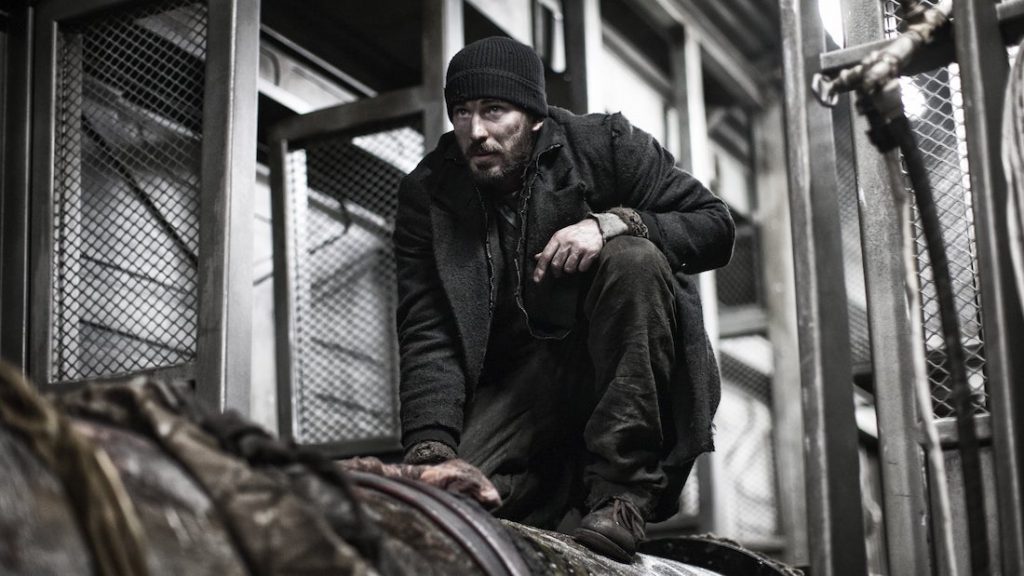
The premise is simple: after climate change transformed Earth into an inhospitable frozen wasteland, the last remnants of humanity are being kept alive aboard a train powered by a perpetual ‘sacred engine’, owned and operated by reclusive transport tycoon Wilford (Ed Harris). The enormous train is divided into class sections (much like the building in J.G Ballard’s novel High Rise), with the poor at the back and the rich at the front, which becomes the backdrop for a revolution.
Early on, as armed guards carry out a routine count on the impoverished backend passengers, Minister Mason (Tilda Swinton), one of Wilford’s officials, gives a speech that encapsulates the movie’s themes:
In this locomotive we call home, there is one thing left between our warm hearts and the bitter cold. Clothing? Shields? No. Order. Order is the barrier that holds back the frozen death. We must all of us on this train of life remain in our altar’d station, we must each of us occupy our preordained particular position. Would you wear a shoe on your head? Of course you wouldn’t wear a shoe on your head. A shoe doesn’t belong on your head. A shoe belongs on your foot. A hat belongs on your head. I am a hat. You are a shoe. I belong on the head. You belong on the foot.
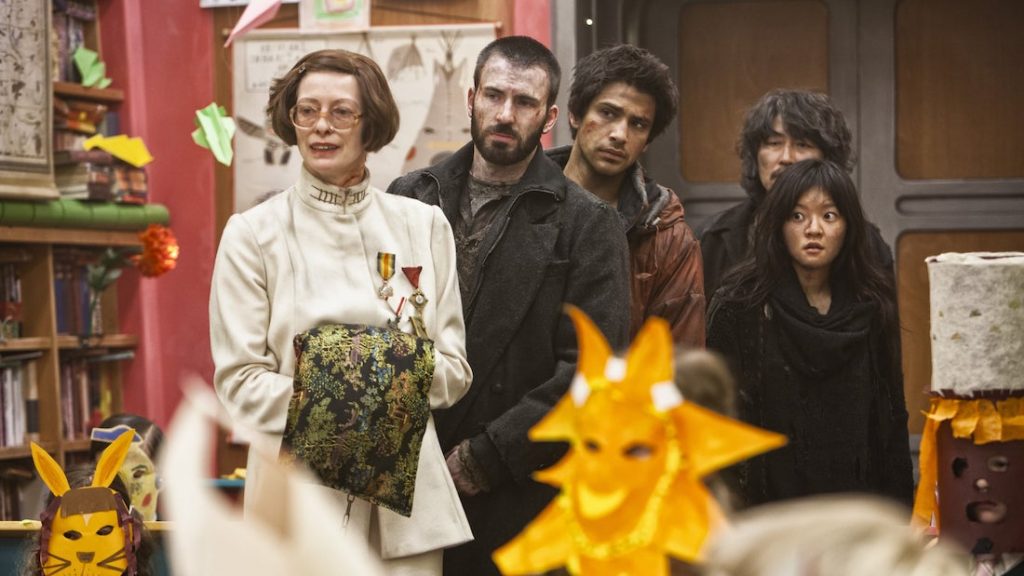
Of course, the rear passengers (who are fed a diet of squidgy black blocks of protein bars) revolt against the established ‘order’, which is an obvious enough analogy for class systems around the world. Although something of a familiar theme in many of Bong Joon-ho’s films, his antiauthoritarian, anti-corporation views are never boring. Led by Curtis (Chris Evans), his father-figure Gilliam (John Hurt), and protege Edgar (Jamie Bell), the revolutionaries make their way through the train with the help of drug-addict Namgoong (Song Kang-ho), who designed its security systems, and his equally drug-addled clairvoyant daughter Yona (Ko Asung).
With each new carriage, a different challenge arises: from excellently executed action set pieces where a whole carriage is plunged into a pitch-black, fire-lit, brutal melee fight… to the surreal ‘school’ carriage, where children are ‘educated’ on the history of Wilford and his sacred engine. The children and the teacher (a brilliantly disturbing Alison Pill), chant and sing “what happens if the engine stops? We all freeze and die!” It’s eerily reminiscent of North Korean propaganda and newsreels.
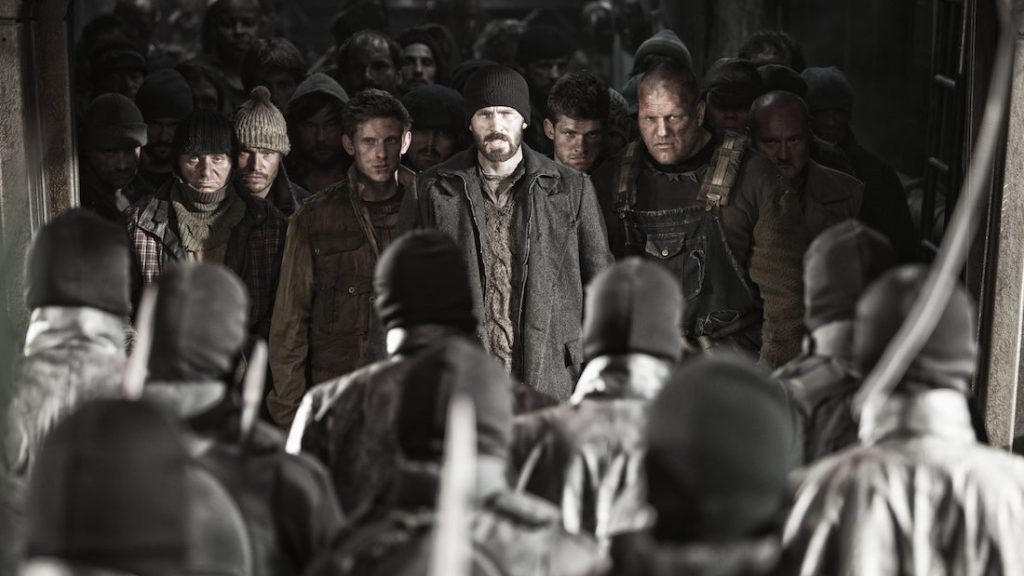
However, the plot isn’t as simple as it seems, and to good effect. Snowpiercer isn’t dealing with a straightforward ‘revolt + struggle = victory’ formula. Of course, Curtis eventually does reach the front of the train to meet with Wilford, but not in the way one might think, and the way in which it does prompts deeper thought than ‘authority = bad.’ Indeed, the final shot, in the aftermath of the brutal battles and journey up the train, is one of hope.
Unfortunately, Snowpiercer didn’t get the attention it deserved when it premiered. Bong Joon-ho had to face-off with disgraced Hollywood mogul and convicted rapist Harvey Weinstein on a number of edits to the film. The director’s cut and Weinstein’s cut was test screened and, after Joon-ho’s scored higher with audiences, a frustrated Weinstein downgraded it from a nationwide release with The Weinstein Company to its specialised division, RADiUS, before the film made its way to Netflix.
Bolstered by a star-studded cast and a standout performance from Tilda Swinton, Snowpiercer is a solid thriller that deserves to be revisited in light of Bong Joon-ho’s success with Parasite. If only to compare it to the recent TNT television adaptation. It’s another gem in director Bong’s filmography.
SOUTH KOREA • CZECH REPUBLIC | 2013 | 126 MINUTES | 1.85:1 | COLOUR | ENGLISH

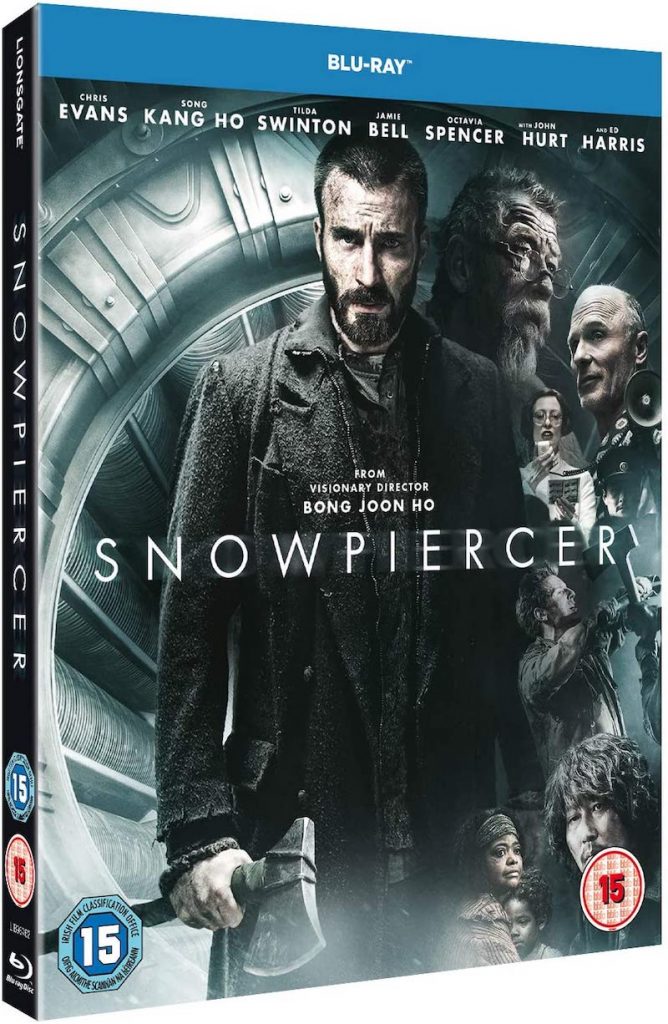
The Blu-ray disc was unavailable for review due to the COVID-19 pandemic, but the bonus material breaks down as follows…

director: Bong Joon-ho.
writer: Bong Joon-ho & Kelly Masterson (based on the graphic novel ‘Le Transperceneige’ by Jacques Lob, Benjamin Legrand & Jean-Marc Rochette).
starring: Chris Evans, Song Kang-ho, Tilda Swinton, Jamie Bell, Octavia Spencer, Ewen Bremner, Ko Asung, John Hurt, Alison Pill & Ed Harris.
